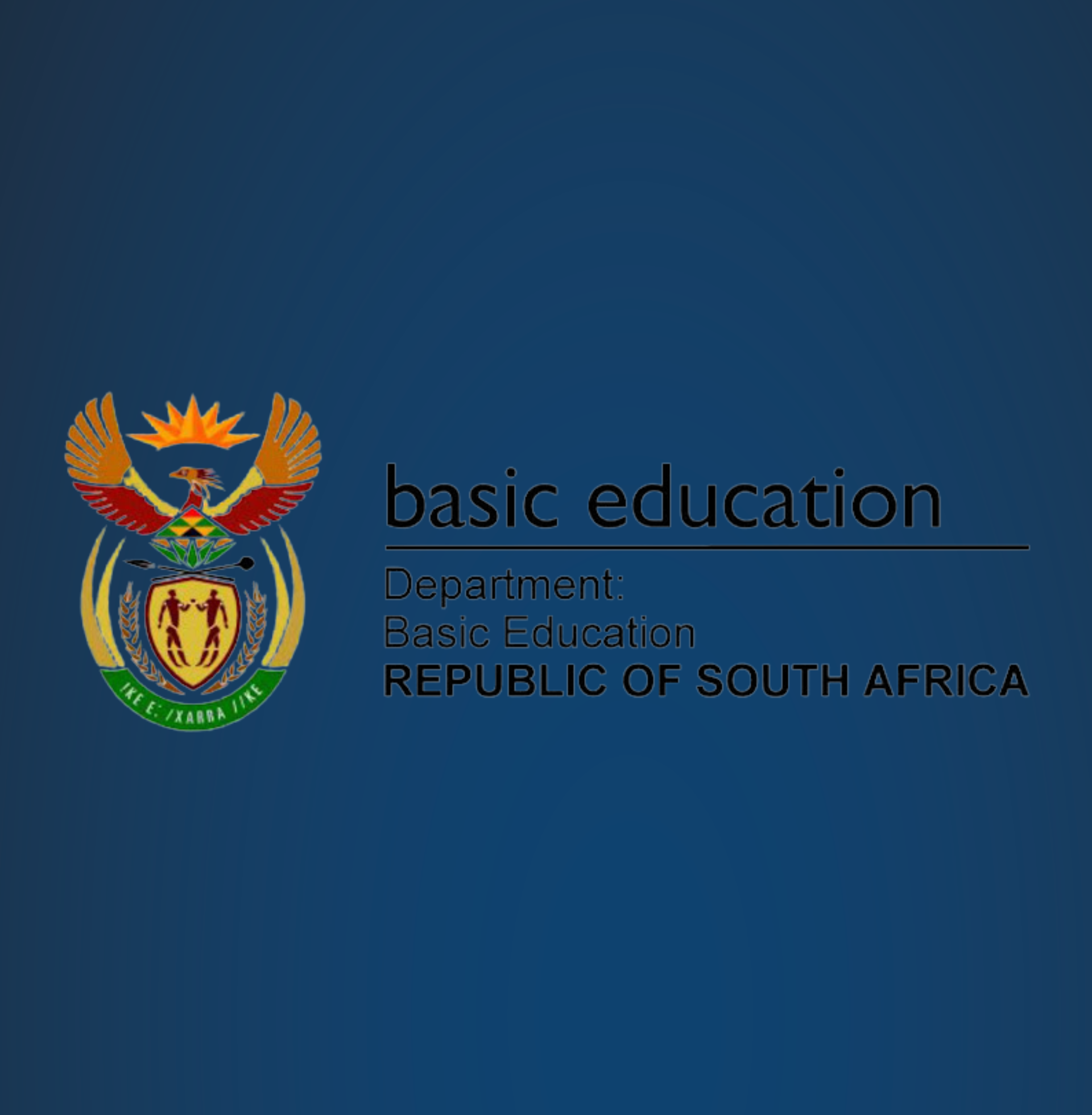
NN 20/2025
VOORSTANDERS IN AKSIE: VERSTAAN DIE ONDERWYSERSUNIE SE
MANDAAT
Dit is ʼn bisarre, maar tog wonderlike wêreld waarin ons tans leef. Dit is veral waar en relevant as mens die stories en ervarings in die onderwyssektor in ag neem. Opvoeders bevind hulself by talle geleenthede in ʼn situasie wat tot die volgende reaksie lei: "Ag nee, dis moeilikheid. Laat ek my vakbond bel!".
Dit is egter belangrik om te verstaan dat, so graag die SAOU sy lede wil verteenwoordig en verdedig, daar ʼn wetlike mandaat is ingevolge waarvan 'n vakbond toegelaat word om op te tree. Die kern-fokus van hierdie inligtingstuk is om te verseker dat lede verstaan wanneer die SAOU die wetlike reg het om bystand te verleen.
1. Wat presies is die vakbond?
Onderwysvakbonde is professionele, geregistreerde organisasies wat bestaan met die doel om onderwysers teen onbillike arbeidspraktyke te beskerm en om onderwysers se salarisse asook beleide relevant tot die onderwys te onderhandel. Ons, as vakbond, is ʼn sleutelrolspeler in belangrike besluite wat deur die regering in die onderwyssektor geneem word.
In Suid-Afrika speel onderwysvakbonde en veral die SAOU ongetwyfeld 'n sentrale rol in arbeidsverhoudinge, die ontwikkeling van onderwysbeleid en die breër sosio-ekonomiese omgewing wat onderwys beïnvloed.
Die Wet op Arbeidsverhoudinge, 66 van 1995 (WAV), reguleer alle vakbonde in Suid-Afrika. In artikel 213 van die WAV word ʼn "vakbond" soos volg gedefinieer:
"...'n vereniging van werknemers wie se hoofdoel is om verhoudings tussen werknemers en werkgewers te reguleer, insluitend enige werkgewersorganisasies.”
Hierdie definisie is die sleutel tot die begrip van die rol en mandaat van 'n vakbond, aangesien dit duidelik stipuleer dat die primêre regsfunksie behels om op te tree in sake wat direk verband hou met die diensverhouding, insluitend, maar nie beperk tot salarisse, werksomstandighede, ontslag en kollektiewe bedinging.
2. Die wetlike mandaat wat aan vakbonde toevertrou is
Die wetgewende raamwerk wat vakbonde beheer, word in die WAV gevind. Om spesifiek die vraag te beantwoord oor wat die mandaat van die vakbond behels, moet daar na Artikel 200 van die WAV verwys word.
In hierdie artikel word voorsiening gemaak vir die gevalle waar die vakbond wettiglik toegelaat word om sy lede te verteenwoordig. Dit kan opgesom word om te sê dat ʼn vakbond die wetlike mandaat het om in drie vorme van kapasiteit in enige geskil waarby enige van sy lede ʼn party is, op te tree.
Die vakbond het die volgende drie vorme van handelingsbevoegdheid:
(a) in die vakbond se eie belang;
(b) namens enige van sy lede;
(c) in die belang van enige van sy lede.
Artikel 200 kwalifiseer die reg verder en bepaal dat enige geregistreerde vakbond geregtig is om ʼn party te wees by enige verrigtinge ingevolge die WAV indien een of meer van sy lede ʼn party by daardie verrigtinge is. Dit beteken dat ʼn vakbond geregtig is om in te gryp in arbeidsverwante geskille, wat ʼn oorsprong het uit die relevante wetgewing en in voortspruitende verrigtinge voor die KVBA, ʼn raad of ʼn hof, indien die party wat verteenwoordiging versoek, instem en die ingryping in die belang van enige van sy lede is.
3. Die breë kategorisering van die mandaat
Die mandaat en regte van onderwysersvakbonde kan breedweg as volg gekategoriseer word.
3.1. Kollektiewe Bedinging en Verteenwoordiging:
Die vakbond verteenwoordig sy lede in bedingingsrade soos die Raad op Arbeidsverhoudinge in die Onderwys (RAVO) of die Kommissie vir Versoening, Bemiddeling en Arbitrasie (KVBA) vir salarisonderhandelinge, werksomstandighede, voordele en ander werkverwante kwessies.
3.2. Arbeidsgeskilbeslegting:
Lede word bygestaan in grieweprosedures, dissiplinêre verhore en geskille met betrekking tot beweerde wangedrag, onbillike arbeidspraktyke, ontslag en ander geskille met betrekking tot die pligte en verantwoordelikhede van die werkgewer teenoor die werknemer. Dit sluit verteenwoordiging in prosedures soos konsiliasies, arbitrasies en hofverskynings in.
3.3. Professionele Ontwikkeling en Beïnvloeding van Beleide:
Die vakbond bepleit professionele ontwikkeling, voortgesette opleiding en die kwalifisering van opvoeders. Daar word ook deelgeneem aan die prosesse rakende die vorming van nasionale en provinsiale onderwysbeleid, ontwikkeling van die kurrikulum en implementeringsraamwerke.
3.4. Beskerming van Lede se Regte:
'n Verdere belangrike funksie van die vakbond is om opvoeders te verdedig teen administratiewe onbillikheid, viktimisering en ongunstige werksomstandighede. Dit sluit ook litigasie in, waar nodig, om grondwetlike en statutêre regte af te dwing.
3.5. Bevordering van Gehalte Onderwys:
Alhoewel die vakbond se primêre fokus die verteenwoordiging van werknemers behels, pleit die vakbond dikwels vir hervormings wat daarop gemik is om die gehalte van onderwys, skoolinfrastruktuur en leeromstandighede te verbeter. Dit is gekoppel aan die breër grondwetlike mandaat om die reg op onderwys te verseker.
Daar is beperkings op die regte van ʼn vakbond en dus ook 'n wetlike verantwoordelikheid om daardie regte verantwoordelik uit te oefen en op ʼn wyse wat nie inbreuk maak op ander wetgewing, leerderregte of die lewering van gehalte onderwys ontwrig nie.
4. Beperking op verteenwoordiging in siviele regsaangeleenthede
Dit is ʼn eksplisiete beperking dat die geskil ingevolge waarvan 'n lid verteenwoordig word, binne die bestek van werkverwante sake onder die WAV moet val. Die vereiste bestaan ook dat verteenwoordiging slegs aan huidige lede toegestaan mag word soos bepaal in die grondwet van die vakbond.
Elke vakbond word deur sy eie grondwet beheer, wat by die Departement van Arbeid geregistreer moet word.
Die grondwet definieer die volgende:
(a) Die omvang van die vakbond se aktiwiteite,
(b) Dienste wat aan lede gebied word, en
(c) Die vakbond se magte en doelwitte.
Geen grondwet mag teenstrydig wees met die betrokke wetgewing nie, wat in hierdie geval die WAV is.
Die definisie van ʼn vakbond, sowel as Artikel 200 van die WAV, dui duidelik die mandaat van die vakbond aan. Die mandaat en toestemming om namens sy lede siviele regsaangeleenthede te hanteer, val nie binne die bestek van die WAV-bepalings nie en is dus verbode.
Siviele reg handel oor geskille tussen individue, organisasies of albei, eerder as arbeidsverwante of kriminele oortredings. Hierdie sake behels gewoonlik een party wat vergoeding of die afdwinging van regte verlang.
Van die sleutelgebiede van Siviele Reg in Suid-Afrika sluit in:
- Kontraktereg:
Dit behels geskille in verband met ooreenkomste, bv. versuim om dienste of goedere te lewer. - Deliktereg:
Gevalle waar iemand verlies of besering ly as gevolg van die onregmatige gedrag van ʼn ander (bv. laster, nalatigheid of skade aan eiendom). - Familiereg:
Sake soos egskeiding, kinderregte, onderhoud (kinder-/gadeonderhoud) en aanneming. - Eiendomsreg:
Geskille rakende eienaarskap, huur, erfenis of grense van grond en eiendom. - Verbruikersbeskerming:
Wanneer die regte van ʼn verbruiker geskend word, soos die verkoop van defektiewe goedere of valse advertensies. - Insolvensiereg:
In die geval waar individue of maatskappye nie hul skuld kan betaal nie en regsprosesse gevolg word.
Die vakbond sal nie in staat wees om sy lede in die bogenoemde omstandighede by te staan nie, ten spyte daarvan dat gekwalifiseerde regspraktisyns in diens van die vakbond is, weens die gebrek aan 'n wetlike mandaat tot dié effek.
5. Wet op Regspraktyk 28 van 2014
Benewens die feit dat die vakbond verplig is om binne sy wetlike mandaat op te tree, moet daar ook verstaan word dat daar wetgewing is wat bepaal wie die gesag het om amptelik regsdienste te lewer.
Die Wet op Regspraktyk bepaal wie regsdienste in Suid-Afrika mag lewer. Hierdie wet bepaal dat slegs toegelate prokureurs, advokate of professionele persone wat by die Regspraktykraad geregistreer is, regsverteenwoordiging of advies in siviele sake mag verskaf.
'n Vakbond kan nie as ʼn regspraktisyn of regsfirma optree nie. Die lede mag egter deur die vakbond na gekwalifiseerde eksterne prokureurs verwys word om in siviele sake bystand te verleen. Daar is egter geen verpligting op 'n vakbond om die kostes te dra nie.
Ten slotte is dit belangrik dat lede werklik verstaan dat indien die vakbond ultra vires (buite grondwetlike magte) optree, die gevolg moontlik blootstelling aan nadelige regsuitdagings inhou.
Verder sal enige vorm van ongemagtigde regspraktyk ʼn kriminele oortreding ingevolge die Wet op Regspraktyk daarstel. Die vakbond loop gevolglik die risiko om aanspreeklik gehou te word vir nalatige of onbevoegde regsadvies wat verskaf sou word.
Die SAOU vertrou dat lede sal verstaan dat die wetlike mandaat van Suid-Afrikaanse onderwysersvakbonde veelsydig is, gewortel in grondwetlike regte en verder uitgebrei word deur statutêre en institusionele meganismes soos hierbo verduidelik, en sal hul verwagtinge en vooruitsigte van die vakbond dienooreenkomstig baseer.
Lede kan verseker wees dat in die geval van arbeidsverwante geskille, ingevolge waarvan dit handel oor die verhouding tussen werknemer en werkgewer, die vakbond die wettige reg het om bystand te verleen en die geleentheid dienooreenkomstig met ywer sal aangryp.
Die vakbond se primêre rol is die beskerming en bevordering van opvoeders se arbeidsregte, maar dit dra ook ʼn breër verantwoordelikheid om positief tot die onderwysstelsel by te dra. Die betrokkenheid van die SAOU moet ook uitgeoefen word in ooreenstemming met die oorkoepelende grondwetlike imperatief om toegang tot gehalte-onderwys te bied.
Indien jy twyfel of vrae het oor die onderwerp, moet asseblief nie huiwer om jou provinsiale SAOU-kantoor of die SAOU Regsafdeling te kontak nie.
2025/07/29
ADVOCATES IN ACTION: UNDERSTANDING THE TEACHER UNION MANDATE
2. The legal mandate entrusted to unions
The union has the following three forms of capacity to act:
(a) in the union’s own interest;
(b) on behalf of any of its members;
(c) in the interest of any of its members.
3. The broad categorisation of the mandate
The mandate and rights of teacher unions can be broadly categorised as follows.
3.1 Collective Bargaining and Representation:
3.2 Labour Dispute Resolution:
3.3 Professional Development and Policy Influence:
3.4 Protection of Members’ Rights:
3.5 Promotion of Quality Education:
4. Limitation on representation in civil law matters
The constitution defines the following:
(a) The scope of the union's activities,
(b) Services offered to members, and
(c) The union’s powers and objectives.
No constitution may be contrary to the relevant legislation, which in this case is the LRA.
Some of the key areas of Civil Law in South Africa include:
- Contract Law
This entails disputes over agreements, e.g. failure to deliver services or goods as promised. - Delict
Cases where someone suffers loss or injury due to the wrongful conduct of another (e.g. defamation, negligence, or damage to property). - Family Law
Matters such as divorce, child custody, maintenance (child/spousal support), and adoption. - Property Law
Disputes regarding ownership, leasing, inheritance, or boundaries of land and property. - Consumer Protection
When the rights of a consumer are violated, such as being sold defective goods or false advertising. - Insolvency law
In the event where individuals or companies are unable to pay their debts and legal processes are followed.










